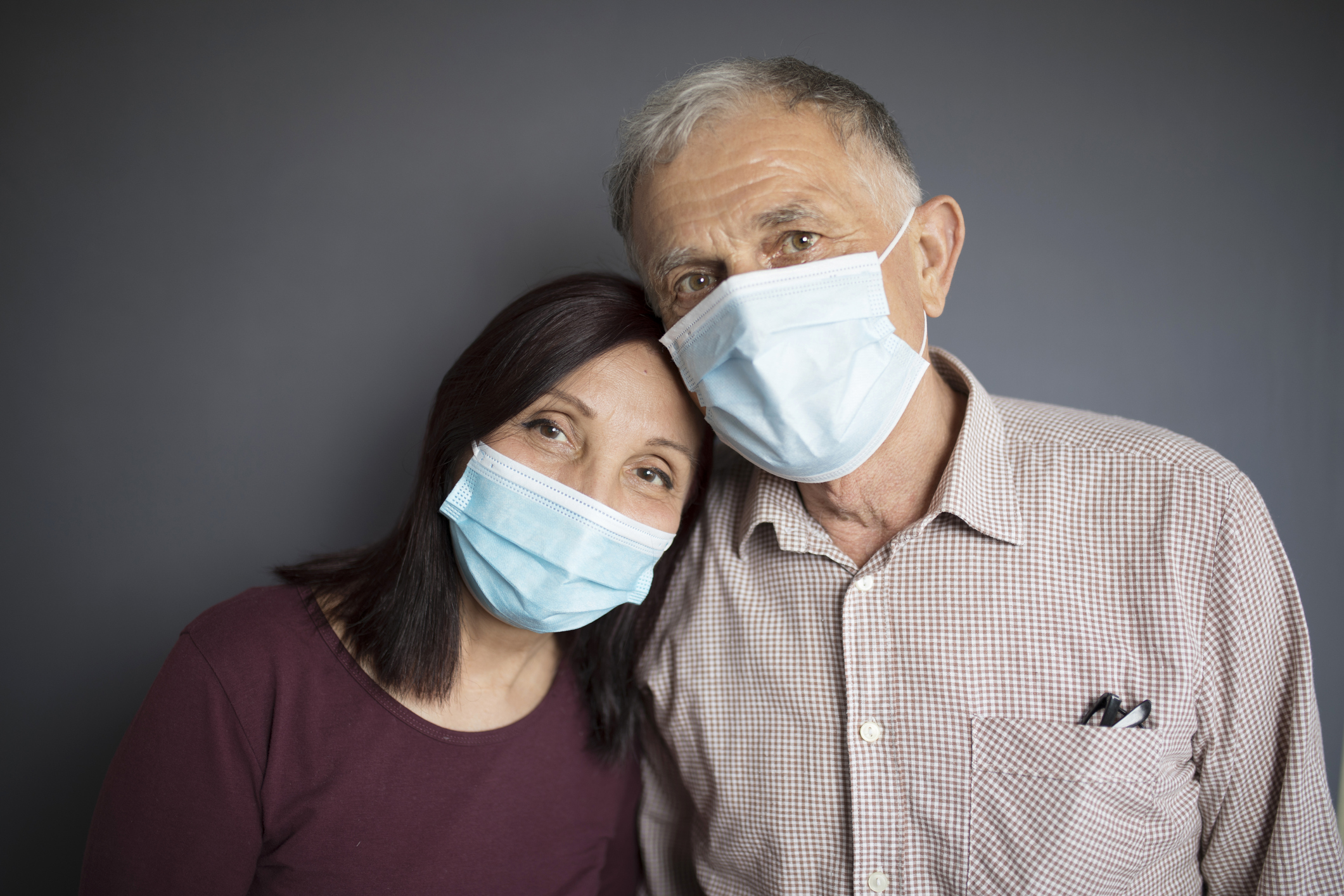Get Easy Health Digest™ in your inbox and don’t miss a thing when you subscribe today. Plus, get the free bonus report, Mother Nature’s Tips, Tricks and Remedies for Cholesterol, Blood Pressure & Blood Sugar as my way of saying welcome to the community!
How age can impact COVID-19 vaccine response

The COVID-19 pandemic is far from over…
In the U.S., the number of infections is climbing once again, driven mainly by more contagious variants of SARS-CoV-2, the virus that causes COVID-19.
If you’ve already been vaccinated, you may think that it’s completely safe to resume normal life despite the rising infection rate.
But as effective as all the existing COVID-19 vaccines are, none of them provide 100 percent protection. And if you’re an older adult, you need to be especially careful…
Vaccine immune response less potent for older people
A recent laboratory study from Oregon Health & Science University indicates that older people appear to produce fewer antibodies against SARS-CoV-2. These blood proteins are made by the immune system to protect against viral infection and are key players in defending against the novel coronavirus.
“Our older populations are potentially more susceptible to the variants even if they are vaccinated,” says senior author Dr. Fikadu Tafesse, assistant professor of molecular microbiology and immunology in the OHSU School of Medicine.
For the study, researchers took blood from 50 people two weeks after their second dose of the Pfizer/BioNTech COVID-19 vaccine and used it to measure their immune response. After separating the participants into age groups, they put their blood serum in test tubes and exposed the samples to the original “wild-type” SARS-CoV-2 virus as well as the P.1, or gamma, variant that originated in Brazil.
According to the results, the younger participants showed a more robust antibody response. In fact, the youngest group, who were all in their 20s, had an antibody response nearly seven times stronger than the oldest group, which included people between the ages of 70 and 82. Tafesse says this means older vaccinated people might be more vulnerable to variants of the SARS-CoV-2 virus.
That doesn’t mean that vaccination won’t save your life, however, if you are older.
Dr. Marcel Curlin, study co-author and associate professor of medicine (infectious diseases) in the OHSU School of Medicine, says that even though the vaccine may produce a lower immune response in older people, it’s still much stronger than it would be if they hadn’t been vaccinated at all.
“Vaccination in this group may make the difference between serious and mild disease and likely reduces the chances of transmitting SARS-CoV-2 to another person,” he says.
Add layers of protection if you’re older
With the number of people getting vaccinated stalling across the U.S., researchers say their findings emphasize how important it is to promote vaccination in local communities. Vaccinations are key to reducing the spread of the COVID-19 virus and its potentially more transmissible variants, especially for older people, since they appear to be more susceptible to breakthrough infections.
“Older people aren’t entirely safe just because they’re vaccinated; the people around them really need to be vaccinated as well. At the end of the day, this study really means that everybody needs to be vaccinated to protect the community,” Tafesse says.
If you’re an older adult who is vaccinated, it’s important to consider additional layers of protection by continuing to practice the safety guidelines recommended by experts when the pandemic first began…
- Wear masks and practice social distancing when out in public or if sharing a home with people who are not vaccinated.
- Avoid crowded places, like the grocery store, and consider grocery pickup or delivery.
- Continue to wash your hands often. Simple soap and water was shown to be effective and should be your first choice. If not available, use hand sanitizer.
- If weather permits, open windows to air out your home or run your HVAC system to filter the inside air. Remember to change your filter regularly — or maybe a little more often these days to be safe.
- And don’t forget, some experts agree that vitamins and minerals can support your immune system.
Editor’s note: There are perfectly safe and natural ways to decrease your risk of blood clots including the 25-cent vitamin, the nutrient that acts as a natural blood thinner and the powerful herb that helps clear plaque. To discover these and other secrets of long-lived hearts, click here for Hushed Up Natural Heart Cures and Common Misconceptions of Popular Heart Treatments!
Sources:
Study links vaccine immune response to age — Oregon Health & Science University
Vaccinations by location — Google/Our World in Data
Possible Side Effects After Getting a COVID-19 Vaccine — Centers for Disease Control and Prevention
How Do I Find a COVID-19 Vaccine? — Centers for Disease Control and Prevention
Selected Adverse Events Reported after COVID-19 Vaccination — Centers for Disease Control and Prevention












